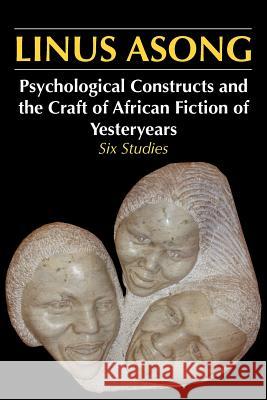Psychological Constructs and the Craft of African Fiction of Yesteryears : Six Studies » książka
Psychological Constructs and the Craft of African Fiction of Yesteryears : Six Studies
ISBN-13: 9789956727667 / Angielski / Miękka / 2012 / 230 str.
Psychological Constructs and the Craft of African Fiction of Yesteryears : Six Studies
ISBN-13: 9789956727667 / Angielski / Miękka / 2012 / 230 str.
(netto: 199,61 VAT: 5%)
Najniższa cena z 30 dni: 186,19 zł
ok. 13-18 dni roboczych
Dostawa przed świętami

Darmowa dostawa!
The novel remains the most popular genre in the African literary landscape. In the very large body of criticism that has been devoted to the craft of African fiction, this very stimulating study of six African novels will hold its own distinctive place for a long while. It brings to African critical thought not only an exceptional acumen of interpretation and analysis, but something much more important to most of the previous serious literary study than mere technical dissection - a keen sense of the experience and imaginative truth that make Asong's selected African texts living books as well as authentic record of human and moral values. Many of Asong's perceptions are not only critically shrewd but humanly searching, alert to aesthetic quality and invention. No one interested in creative criticism of African fiction will read this book without finding its approach a challenge to his or her own reading of African fiction, and a stimulus to understanding the growth and enduring richness of the best of the African novel. The book balances nicely in its choice of three texts in English and three in French, the two dominant colonial languages in Africa South of the Sahara. Even more interesting is the fact that although all the French texts have been translated into English, Asong opts to treat the three in the original language in which they were conceived and executed, a decision which keeps the reader as close as possible to the original idiom.
The novel remains the most popular genre in the African literary landscape. In the very large body of criticism that has been devoted to the craft of African fiction, this very stimulating study of six African novels will hold its own distinctive place for a long while. It brings to African critical thought not only an exceptional acumen of interpretation and analysis, but something much more important to most of the previous serious literary study than mere technical dissection - a keen sense of the experience and imaginative truth that make Asongs selected African texts living books as well as authentic record of human and moral values. Many of Asongs perceptions are not only critically shrewd but humanly searching, alert to aesthetic quality and invention. No one interested in creative criticism of African fiction will read this book without finding its approach a challenge to his or her own reading of African fiction, and a stimulus to understanding the growth and enduring richness of the best of the African novel. The book balances nicely in its choice of three texts in English and three in French, the two dominant colonial languages in Africa South of the Sahara. Even more interesting is the fact that although all the French texts have been translated into English, Asong opts to treat the three in the original language in which they were conceived and executed, a decision which keeps the reader as close as possible to the original idiom.











